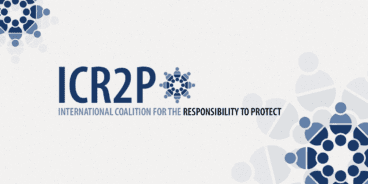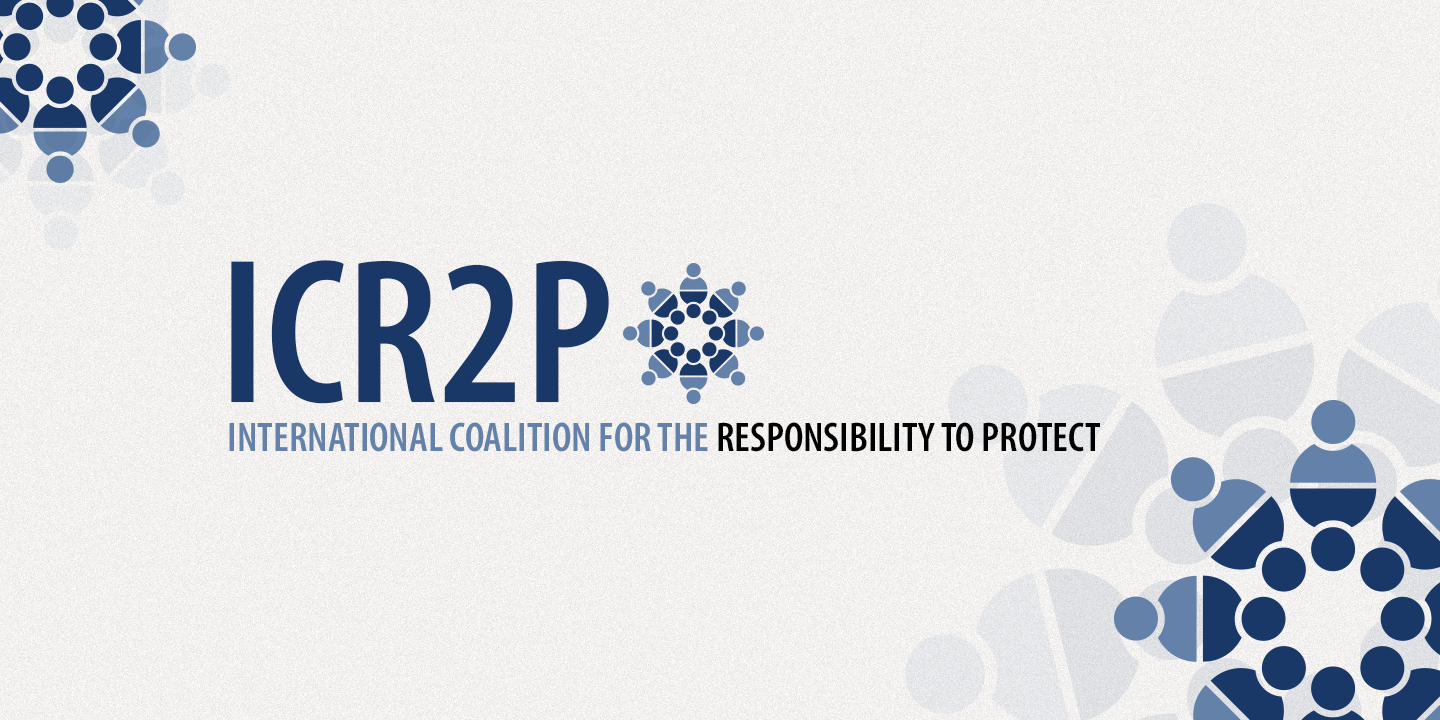

Call to Action for the United Nations General Assembly during its 77th session from the International Coalition for the Responsibility to Protect
Last month, heads of state and government gathered in New York to open the 77th session of the UN General Assembly. As the General Assembly proceeds through this session, member states will have an opportunity to renew and deepen their collective commitment to upholding the key pillars of the UN – human rights, peace and security, the rule of law and development – as well as set an ambitious agenda to protect populations globally through effective multilateralism.
In the 2005 World Summit Outcome Document, states committed to a collective responsibility to protect populations from mass atrocities, namely genocide, war crimes, crimes against humanity and ethnic cleansing. In this regard, the International Coalition for the Responsibility to Protect (ICR2P) calls on all UN member states to fulfill the following commitments during the 77th session.
1. Improve institutionalized capacity for early warning of atrocities
There are a range of early warning signs of atrocity crimes that should serve as alarms for UN member states to catalyze preventive action. For example, systematic or widespread human rights violations and abuses often serve as a key early warning sign of possible atrocity crimes. They may precede and significantly elevate atrocity risks and may constitute atrocity crimes themselves. The UN system must more effectively seize these opportunities to not only save innocent lives but to also avoid costlier coercive measures. ICR2P calls on UN member states to strengthen their individual and collective early warning and preventive capacities by:
-
-
- Integrating an atrocity prevention lens into all peace, security and human rights work at the General Assembly and ensuring human rights violations and abuses are effectively addressed, including in specific country situations. This can be done in the Third Committee through authorizing independent monitoring or accountability measures, holding dedicated special or emergency sessions and adopting resolutions urging preventive or responsive action. Within the Fifth Committee, member states should also ensure adequate resources are authorized for investigative mechanisms and other tools for atrocity prevention;
- Requesting the UN Office on Genocide Prevention and the Responsibility to Protect to include country assessments in the Secretary-General’s annual R2P report, in line with requests made by 61 states at the 23-24 June 2022 General Assembly plenary meeting on the “Responsibility to Protect and the prevention of genocide, war crimes, ethnic cleansing and crimes against humanity;”
- Ensuring information collected and presented before the Human Rights Council, Security Council and General Assembly, as well as its various committees, includes assessment of specific atrocity risks and how to address them;
- Leveraging meetings under UN Resolution 76/262, which mandates a meeting of the General Assembly whenever a veto is cast in the UN Security Council, to ensure member states are effectively responding to atrocity situations and upholding their responsibility to protect;
- Regularly raising risks of atrocity crimes, including in country specific situations, across participation in relevant bodies, including in the Third Committee, segments during the Economic and Social Council, the Peacebuilding Commission and elsewhere;
- Replicating commitments to the Responsibility to Protect made on the multilateral level in state structures by integrating atrocity prevention concerns in national strategies, mechanisms or policies, as recommended by the UN Secretary General in his 2017 annual report “Implementing the Responsibility to Protect;”
- Becoming a member of the Group of Friends of R2P and the Global Network of R2P Focal Points.
-
2. Ensure participation of civil society and affected populations, including survivor communities
The participation of civil society and affected populations, including survivor communities, is critical to the prevention of and response to atrocity situations. Civil society actors are often the first to witness the indicators and early warning signs of atrocities and are at the forefront of calls for robust and effective preventive measures to respond to emerging crises. In many situations, civil society has also been the driving force behind calls for justice, accountability and redress in the aftermath of atrocities, working directly with affected communities towards societal reconciliation. These actors regularly monitor and document evidence of atrocity crimes and international law violations, which is essential for future accountability mechanisms and/or criminal prosecutions.
Similarly, affected populations are often the people defusing tensions in their communities, even amidst escalating violence. The firsthand lived experience and knowledge of affected populations, including survivor communities, are critical to providing early warnings of looming atrocities and an informed understanding of possible outcomes.
Civil society, affected populations and survivor communities are, therefore, all equipped with an in-depth understanding and expertise that UN member states should incorporate and centralize in all atrocity prevention efforts. ICR2P calls on all UN member states to individually and collectively strive to embed the lived experience, knowledge and rights of civil society and affected populations throughout all stages of the decision-making processes. UN member states can do so by holding regular consultations and briefings with civil society, as well as systematically seeking their insight and input. In so doing, the international community can take more appropriate and effective preventive action that is rights-based and community-informed.
3. Facilitate a cohesive and effective UN system
A cohesive and effective UN system is crucial to helping the international community uphold their collective responsibility to protect. It is also critical to upholding the UN Charter and ensuring that multilateralism delivers peace, dignity and equality for all people. ICR2P calls on UN member states to hold one another and the international community accountable for their obligations under international law, including the UN Charter.
It is imperative that UN member states strive to break silos within the system by bridging the gap between Geneva and New York, as well as work across cross-cutting agendas, including the Call to Action for Human Rights and Our Common Agenda. This would allow states to contribute to the holistic prevention of atrocities and better uphold their collective responsibility to protect populations.
UN member states must ensure that peacekeeping and human rights monitoring mandates receive the necessary funding for key functions, including gender experts, child rights experts, specialized protection officers and human rights monitors. Too often these critical mandate elements are underfunded, dramatically reducing their capacity. ICR2P also calls on UN member states to earmark funding where applicable for atrocity prevention, as well as provide the Office on Genocide Prevention and the Responsibility to Protect with sufficient resources to carry out its mandate.
ICR2P hopes that this call will translate into genuine and improved efforts to protect populations from mass atrocity crimes, hold perpetrators accountable and prevent risks from escalating. ICR2P and its member organizations stand ready as resources of support, early warning and expertise for member states in fulfilling this responsibility.